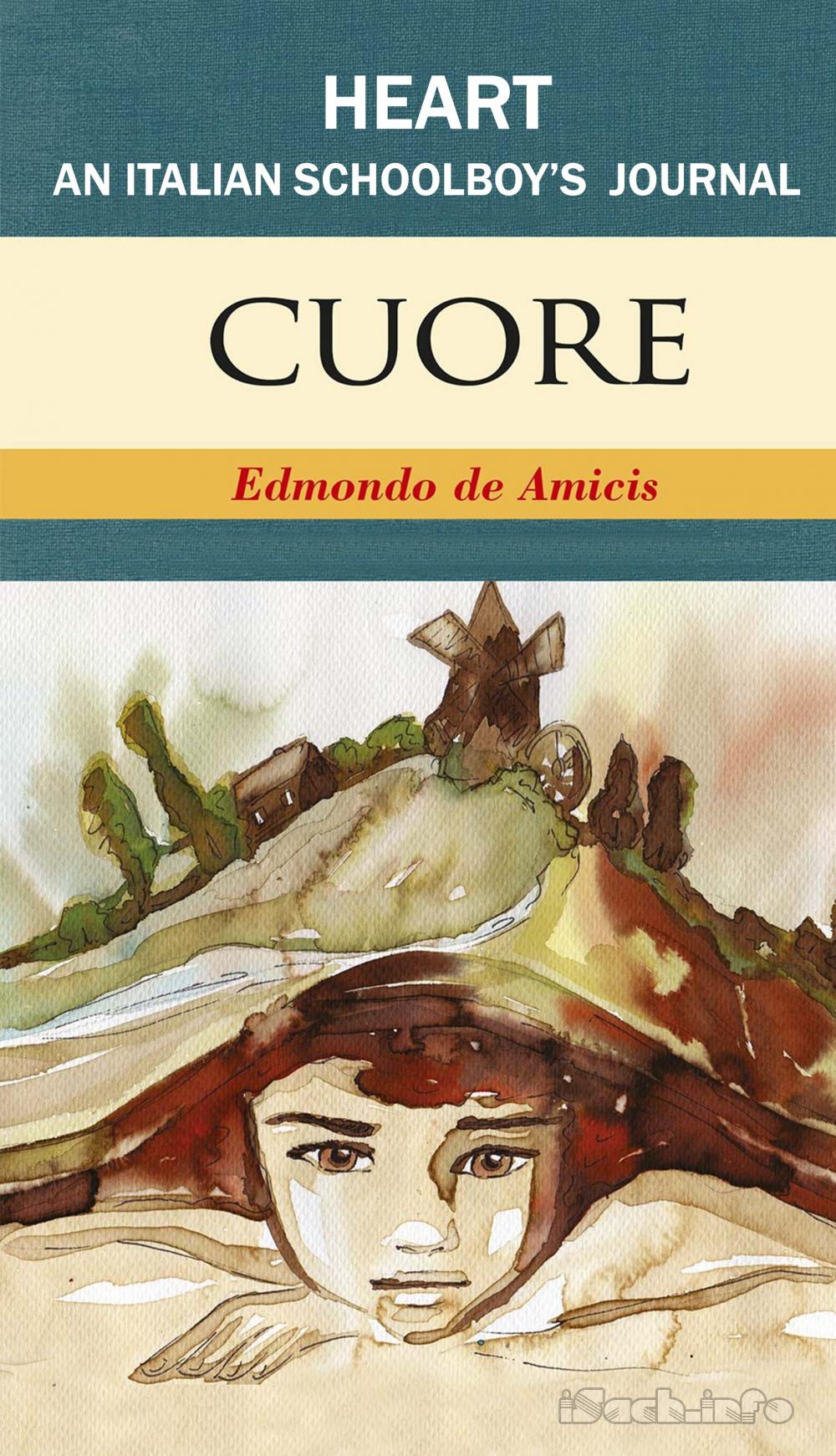Chapter 50: The Prisoner
F
riday, 17th.Ah, this is certainly the strangest event of the whole year! Yesterday morning my father took me to the suburbs of Moncalieri, to look at a villa which he thought of hiring for the coming summer, because we shall not go to Chieri again this year, and it turned out that the person who had the keys was a teacher who acts as secretary to the owner. He showed us the house, and then he took us to his own room, where he gave us something to drink. On his table, among the glasses, there was a wooden inkstand, of a conical form, carved in a singular manner. Perceiving that my father was looking at it, the teacher said:—
“That inkstand is very precious to me: if you only knew, sir, the history of that inkstand!” And he told it.
Years ago he was a teacher at Turin, and all one winter he went to give lessons to the prisoners in the judicial prison. He gave the lessons in the chapel of the prison, which is a circular building, and all around it, on the high, bare walls, are a great many little square windows, covered with two cross-bars of iron, each one of which corresponds to a very small cell inside. He gave his lessons as he paced about the dark, cold chapel, and his scholars stood at the holes, with their copy-books resting against the gratings, showing nothing in the shadow but wan, frowning faces, gray and ragged beards, staring eyes of murderers and thieves. Among the rest there was one, No. 78, who was more attentive than all the others, and who studied a great deal, and gazed at his teacher with eyes full of respect and gratitude. He was a young man, with a black beard, more unfortunate than wicked, a cabinet-maker who, in a fit of rage, had flung a plane at his master, who had been persecuting him for some time, and had inflicted a mortal wound on his head: for this he had been condemned to several years of seclusion. In three months he had learned to read and write, and he read constantly, and the more he learned, the better he seemed to become, and the more remorseful for his crime. One day, at the conclusion of the lesson, he made a sign to the teacher that he should come near to his little window, and he announced to him that he was to leave Turin on the following day, to go and expiate his crime in the prison at Venice; and as he bade him farewell, he begged in a humble and much moved voice, that he might be allowed to touch the master’s hand. The master offered him his hand, and he kissed it; then he said:—
“Thanks! thanks!” and disappeared. The master drew back his hand; it was bathed with tears. After that he did not see the man again.
Six years passed. “I was thinking of anything except that unfortunate man,” said the teacher, "when, the other morning, I saw a stranger come to the house, a man with a large black beard already sprinkled with gray, and badly dressed, who said to me: ‘Are you the teacher So-and-So, sir?’ ‘Who are you?’ I asked him. ‘I am prisoner No. 78,’ he replied; ‘you taught me to read and write six years ago; if you recollect, you gave me your hand at the last lesson; I have now expiated my crime, and I have come hither—to beg you to do me the favor to accept a memento of me, a poor little thing which I made in prison. Will you accept it in memory of me, Signor Master?’
“I stood there speechless. He thought that I did not wish to take it, and he looked at me as much as to say, ‘So six years of suffering are not sufficient to cleanse my hands!’ but with so poignant an expression of pain did he gaze at me, that I instantly extended my hand and took the little object. This is it.”
We looked attentively at the inkstand: it seemed to have been carved with the point of a nail, and with, great patience; on its top was carved a pen lying across a copy-book, and around it was written: “To my teacher. A memento of No. 78. Six years!” And below, in small letters, “Study and hope.”
The master said nothing more; we went away. But all the way from Moncalieri to Turin I could not get that prisoner, standing at his little window, that farewell to his master, that poor inkstand made in prison, which told so much, out of my head; and I dreamed of them all night, and was still thinking of them this morning—far enough from imagining the surprise which awaited me at school! No sooner had I taken my new seat, beside Derossi, and written my problem in arithmetic for the monthly examination, than I told my companion the story of the prisoner and the inkstand, and how the inkstand was made, with the pen across the copy-book, and the inscription around it, “Six years!” Derossi sprang up at these words, and began to look first at me and then at Crossi, the son of the vegetable-vender, who sat on the bench in front, with his back turned to us, wholly absorbed on his problem.
“Hush!” he said; then, in a low voice, catching me by the arm, “don’t you know that Crossi spoke to me day before yesterday of having caught a glimpse; of an inkstand in the hands of his father, who has returned from America; a conical inkstand, made by hand, with a copy-book and a pen,—that is the one; six years! He said that his father was in America; instead of that he was in prison: Crossi was a little boy at the time of the crime; he does not remember it; his mother has deceived him; he knows nothing; let not a syllable of this escape!”
I remained speechless, with my eyes fixed on Crossi. Then Derossi solved his problem, and passed it under the bench to Crossi; he gave him a sheet of paper; he took out of his hands the monthly story, Daddy’s Nurse, which the teacher had given him to copy out, in order that he might copy it in his stead; he gave him pens, and stroked his shoulder, and made me promise on my honor that I would say nothing to any one; and when we left school, he said hastily to me:—
“His father came to get him yesterday; he will be here again this morning: do as I do.”
We emerged into the street; Crossi’s father was there, a little to one side: a man with a black beard sprinkled with gray, badly dressed, with a colorless and thoughtful face. Derossi shook Crossi’s hand, in a way to attract attention, and said to him in a loud tone, “Farewell until we meet again, Crossi,”—and passed his hand under his chin. I did the same. But as he did so, Derossi turned crimson, and so did I; and Crossi’s father gazed attentively at us, with a kindly glance; but through it shone an expression of uneasiness and suspicion which made our hearts grow cold.



 ePub
ePub A4
A4